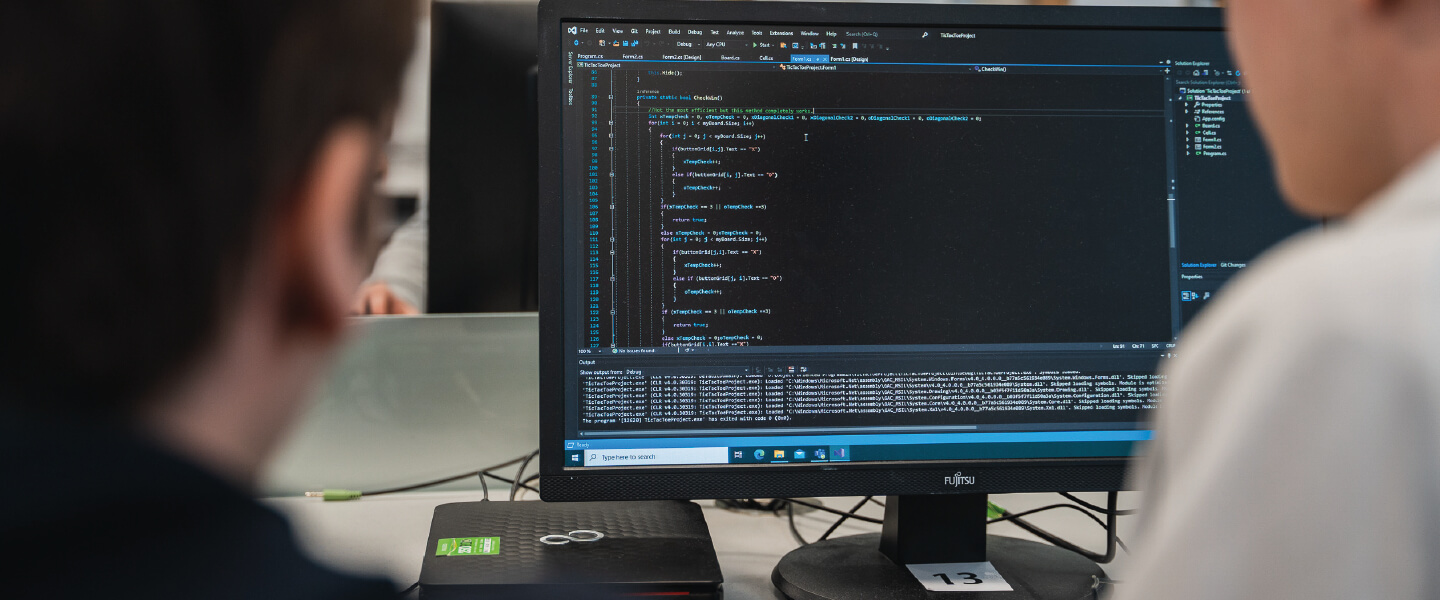Course overview
This HN Flex unit in computer networking provides a comprehensive understanding of networking essentials including operations, protocols, standards and security. It covers LAN, WAN, IP data network protocols, and equips students with skills to install, operate, and troubleshoot small networks. The 15-credit unit is suitable as part of a longer HNC programme or as a standalone module.
HN Flex modules are a great option for anyone who wishes to increase their skills and knowledge without committing to studying for an entire qualification. In this course, you will complete a 15-credit unit within the Computing HNC, which can lead towards a Higher Technical Qualification (HTQ) on completion of both the HNC and HND.
This single unit offers an insight to a cutting-edge programme aimed at those who are eager to upskill and follow a career in various job roles within the high tech and ever-changing world of Software Development, Cybersecurity and Networking. Students on this programme will have a range of different backgrounds and interests meaning the programme will have a rounded approach to delivery and content.
These qualifications will give you the skills to progress as an IT professional and employers often regard vendor certifications as the industry standard. The course is run from our SciTech Digital Innovation Hub which offers cutting edge facilities and equipment.
Our HN Flex units within Computing have been aligned to the occupational standard for the industry. It has been approved by the Institute for Apprenticeships and Technical Education (IfATE).
This course is delivered as part of the South Yorkshire Institute of Technology (SYIoT).
Course content
Having been developed in collaboration with employers in an ambition to meet the needs of the growing demands of the industry, a Higher Technical Qualification provides the opportunity to gain the proper training, knowledge, and skills to be successful in the workplace.
This unit is worth 15 Credits towards a Higher National Certificate.
Computer networks are the driving force behind the evolution of computer systems and allow users to access data, hardware, and services regardless of their location. Being knowledgeable about the underlying principles of networking is of vital importance to all IT professionals. Networking is an environment that is increasingly complex and under continuous development.
Complex computer networking has connected the world by groups of small networks through internet links to support global communications. It supports access to digital information anytime, anywhere, using many applications like email, audio and video transmission, including the World Wide Web, and this has opened the floodgates to availability of information.
The aim of this unit is to give students a wider background knowledge of computer networking essentials, how they operate, protocols, standards, security considerations and the prototypes associated with a range of networking technologies. Students will explore a range of hardware, with related software, and will configure and install these to gain knowledge of networking systems. A range of networking technologies will be explored to deliver a fundamental knowledge of Local Area Networking (LAN), Wide Area Networking (WAN) and their evolution to form large-scale networks. Students will also explore the protocol methodologies related to IP data networks.




